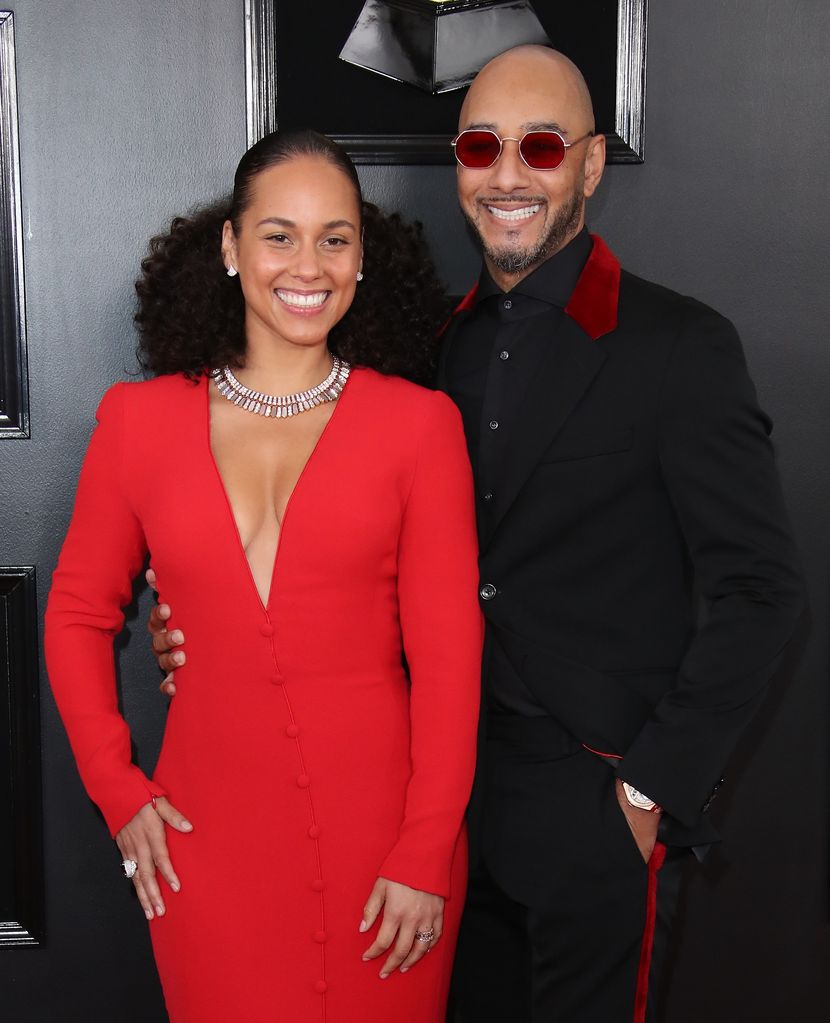George and Amal Clooney’s zero-argument marriage — is it healthy?

George and Amal Clooney rang in a decade of marriage in September 2024 but they also have another milestone they’re pretty proud of.
During a recent interview, George claimed he and Amal have never had an argument.
While speaking to Gayle King on CBS Mornings, he said: “Amal and I, we were here with you once before, and we said we’ve never had an argument. And we still haven’t.”
He reflected on meeting his wife when he was 52, and added: “We’re trying to find something to fight about. I think because I started so late with Amal.”
“I feel so extraordinarily lucky to have met this incredible woman, and I feel as if I hit the jackpot. There isn’t a day that goes by where I don’t think I’m the luckiest man in the world. So it’s great.”
HELLO! spoke to relationship expert, Brandon Wade, who is the CEO and Founder of Seeking.com, to discover his thoughts on a zero-argument marriage.
How rare is it for couples to say they don’t ever argue?
It’s extremely rare for couples to say they never argue. According to a 2022 YouGov poll, only about 3% of couples reported that they “never argue” with their partner, underscoring just how uncommon a completely argument-free marriage truly is.
My wife, Dana, and I proudly fall within this 3% outlier. We met on Seeking.com, the luxury dating platform I created to overcome my own dating challenges. When we decided to get married in 2022, we made a bold choice: no prenup and waiving our rights to divorce. This was our intentional declaration to always put our relationship first, above our individual egos or pride. It’s not that we’ve avoided tough conversations or disagreements; rather, prior to our marriage, we committed to handling issues with open, honest, and respectful communication. By choosing collaboration and understanding over arguing, we’ve managed to navigate differences smoothly, keeping our connection harmonious and strong.
What really constitutes an ‘argument’ over a ‘discussion’?
What really differentiates an ‘argument’ from a ‘discussion’ boils down to intention, emotional tone, and approach. In a discussion, the primary intention is mutual understanding and harmony, whereas arguments often revolve around proving oneself right. Discussions maintain a respectful and patient tone, even during disagreements, while arguments quickly escalate into emotional tension. Finally, discussions involve active listening, openness, and thoughtful engagement with the issue at hand, whereas arguments typically stray into defensiveness, interruptions, blame, or personal criticisms, losing sight of the original issue altogether.
What are the benefits of arguing with your partner?
While some experts claim that arguments can offer benefits like emotional release or preventing resentment, my personal experience suggests otherwise. The supposed benefits, such as increased empathy or clearer communication, can be more effectively achieved through respectful, open discussions. In reality, the main takeaway I have had from arguing with my partners in the past is recognizing how that typically exacerbates conflicts rather than resolving them, reinforcing my belief in the power of thoughtful, collaborative dialogue instead.
Negatives of the above too.
As for negatives, arguing with a partner tends to cause emotional wounds that can linger long after the disagreement ends. Harsh words spoken in anger, even unintentionally, can deeply hurt the people we love most, weakening trust and intimacy. I have experienced heated arguments in my past relationships, primarily driven by my own struggle with managing negative emotions.
Each encounter taught me clearly that arguments solve nothing; instead, they amplify stress, resentment, and emotional fatigue. Over time, these unresolved emotional injuries can strain a relationship significantly, undermining the foundation of respect and mutual understanding necessary for a lasting, healthy partnership. Since meeting Dana, I have learned the value of replacing arguments with calm and constructive discussions, viewing disagreements as opportunities to be even more aligned and connected, rather than create division.
Is it really possible to go through life without arguing with your loved one?
While disagreements in relationships are inevitable, I firmly believe it is entirely possible and highly beneficial to avoid arguing altogether. Dana and I have experienced firsthand that by intentionally choosing respectful, open dialogue and emotional maturity, we can address differences without slipping into harmful arguments. Instead of avoiding conflicts entirely or suppressing emotions, we’ve learned to handle disagreements constructively and vulnerably, turning each challenge into an opportunity to deepen our understanding, strengthen our partnership, and nurture a genuinely harmonious relationship.
How can couples keep a discussion from escalating into an argument?
To keep discussions from escalating into arguments, couples must practice deliberate emotional self-regulation and maintain a team-oriented mindset. Dana and I have found success by setting clear intentions at the beginning of conversations, focusing explicitly on solving issues together rather than proving individual points. Taking breaks when emotions run high, listening actively without interrupting, and consistently validating each other’s feelings have significantly helped us manage disagreements constructively. Importantly, couples who frequently argue should reflect honestly about their love and commitment to each other: true dedication involves being willing to learn, adapt, and put the health of the relationship above personal pride or the urge to always be right.
How to pick battles?
When it comes to picking your battles, the key lies in assessing the significance of the issue at hand. Dana and I have learned to distinguish between minor annoyances and important matters by evaluating the long-term impact on our emotional connection and core relationship values. If an issue triggers strong emotions, taking a moment to pause and reflect often reveals whether it truly warrants discussion.
We prioritize addressing concerns linked to our fundamental beliefs, trust, or patterns of repeated behavior, as these are essential to maintaining a healthy relationship. Ultimately, it’s about asking ourselves if a particular issue genuinely impacts our relationship or if it’s merely driven by ego. By thoughtfully selecting which concerns to address, we’ve maintained harmony and strengthened our partnership.
Source: HelloMagazine
HiCelebNews online magazine publishes interesting content every day in the celebrity section of the entertainment category. Follow us to read the latest news.
Related Posts
- ‘Krapopolis,’ ‘Grimsburg’ and ‘Universal Basic Guys’ Extended at Fox
- King Charles and Prince William Won't Attend Pope Leo XIV's Inauguration — Here's Who Buckingham Palace Is Sending Instead
- ‘Practical Magic 2’ With Sandra Bullock, Nicole Kidman Sets Fall 2026 Release
- Blake Shelton Opens Up About Stepsons Kingston and Zuma Following in Their Parents’ Musical Footsteps (Exclusive)
- ‘The Apprentice’ Producer Sees Trump’s Hollywood Tariffs as “Storytelling Tool” to Buttress Presidential Infallibility










